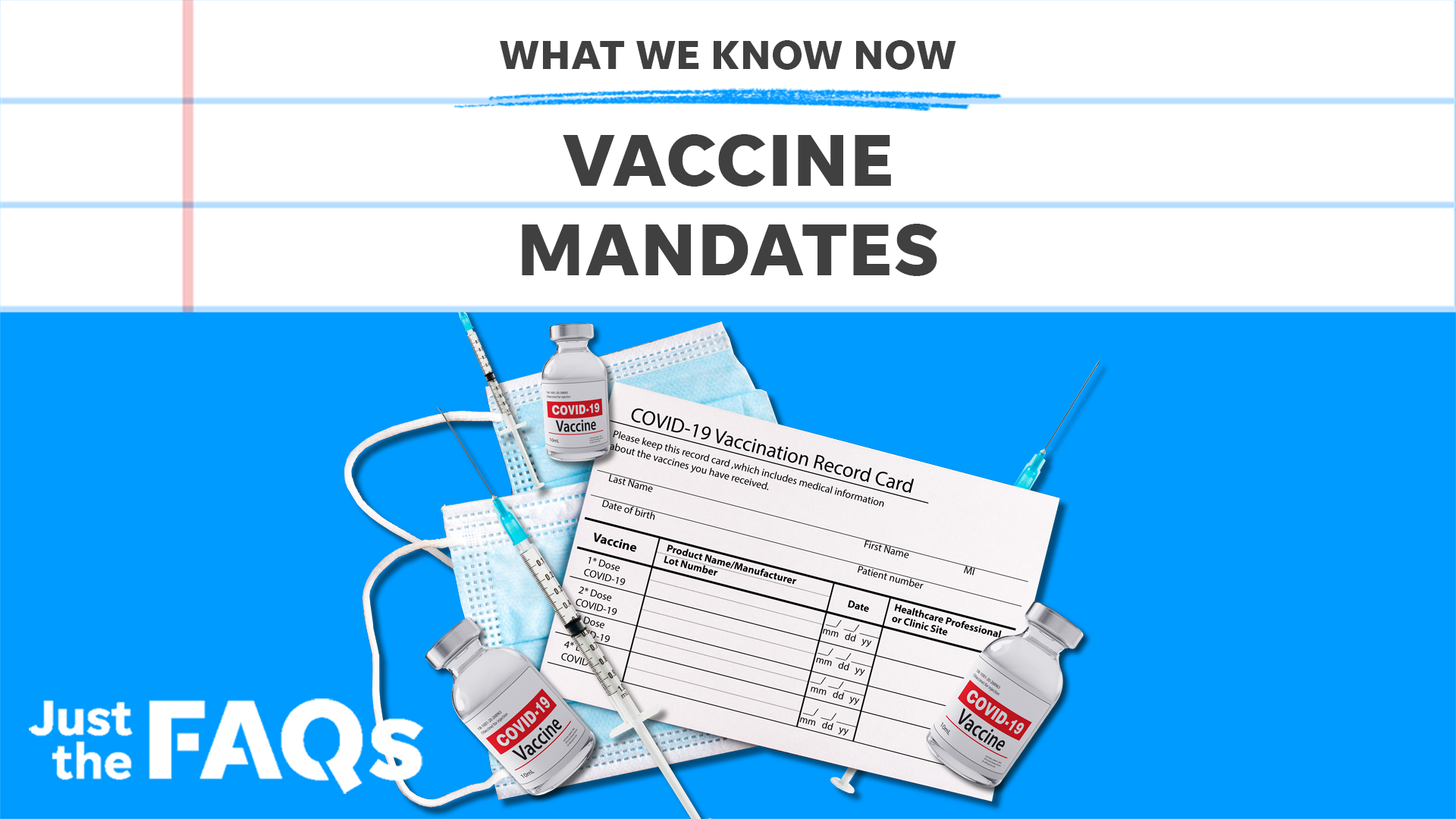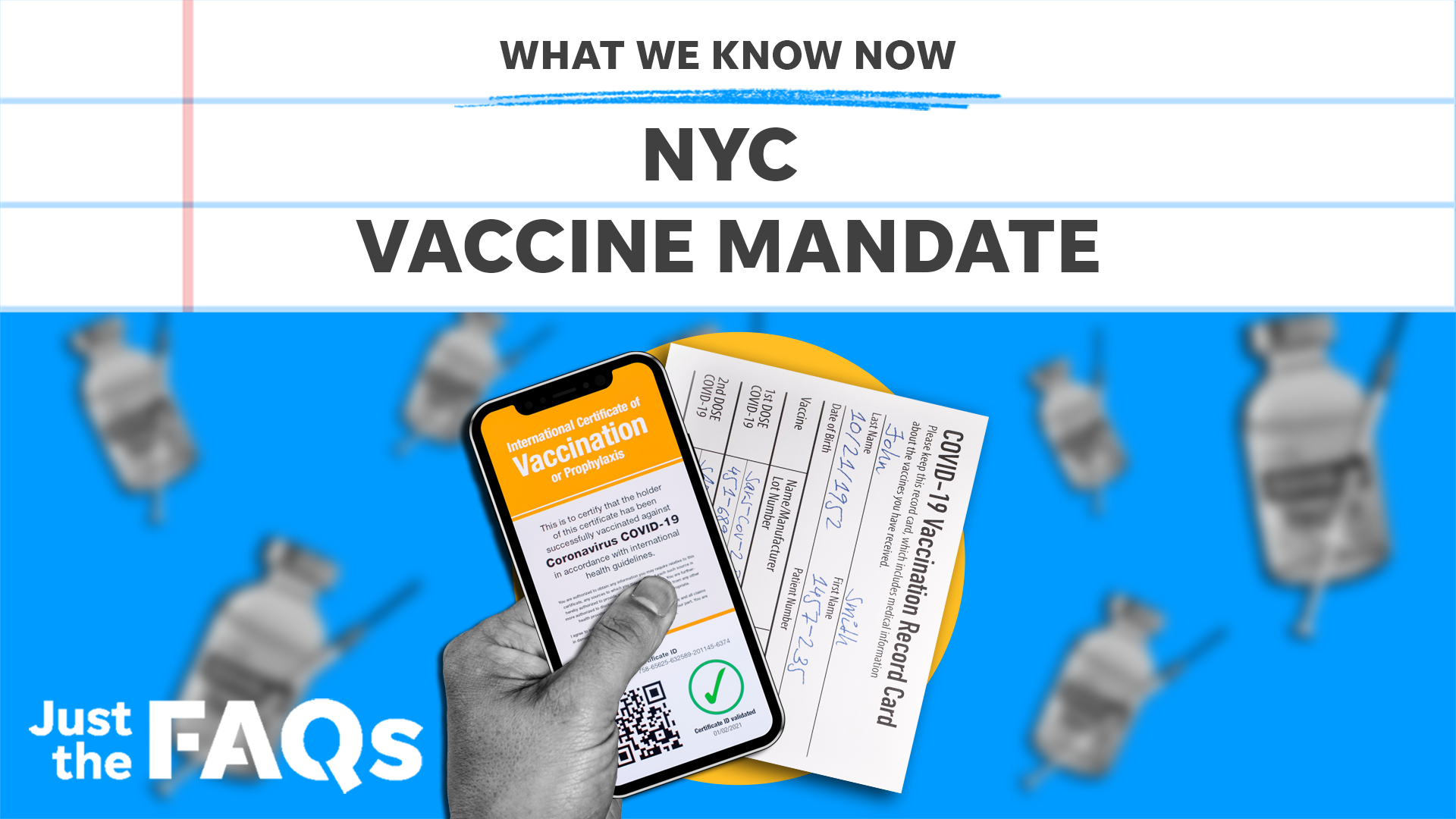Won't get a COVID vaccine? Some bosses may charge you $20 to $50 more for health insurance on every paycheck
Nathan Bomey | USA TODAY

- Full FDA approval could accelerate employer mandates.
- Some employers are considering an insurance surcharge on unvaccinated workers.
- HR professionals fear workers will quit over mandates.
- Some argue that incentives work better than mandates.
Tyson Foods, United Airlines, CNN, the U.S. military.
A wide variety of employers such as those four are imposing COVID vaccine mandates on their workers, and experts believe they’ll have a lot more company soon after the Food and Drug Administration gives the shots its full approval.
Some employers aren’t ready to impose mandates but may still penalize workers for not getting vaccinated, possibly by requiring them to pay an insurance surcharge costing several hundred dollars a year.
“I think they’ve decided that in order to get that needle to move, they need to do something more,” said Wade Symons, leader of the regulatory resources group at Mercer, an employee benefits consultancy.
Move here, get paid: Small towns offer up to $20K just to get you to live there, work remotely
Ready to sell your used vehicle?: You may be surprised by its value

At the same time, other employers are still just asking nicely or sticking with incentives, hoping not to scare workers off amid what HR leaders are calling “The Great Resignation” – a pent-up flood of people quitting after holding onto their jobs during the pandemic.
The hodgepodge of vaccination strategies coincides with the surge of the Delta variant, which is more contagious than earlier versions of the coronavirus and threatens to derail efforts to return to the office.
Here are some of the key issues with vaccine mandates, which experts widely agree are legal as long as workers are provided accommodations for legitimate medical or religious objections.
Will your employer require vaccination?
If you work in a field that requires you to interact with the public, you are among those most likely to be required to be vaccinated, said Michael C. Schmidt, vice chair of law firm Cozen O'Connor’s labor & employment department.
This is particularly true of health care providers such as hospitals, many of which have historically required flu vaccinations.
It may also be true of other industries with workers in harm’s way – such as meat-packing plants. Those facilities faced criticism over COVID outbreaks in the early months of the pandemic because the employees typically work side by side. Tysons Food, which sells meat, recently ordered vaccinations for its workers.
In the travel sector, United Airlines is among the first major companies to issue a vaccine mandate to its employees. Flight attendants and gate agents are among workers who work directly with the public, putting themselves and and travelers at risk.

“IWhat you’re seeing is employers realizing that that resistance is softer than it might have been a few months ago as the Delta variant gets more extreme,” said Denise Rousseau, professor of organizational behavior and public policy at Carnegie Mellon University's Heinz College.
Yet many companies whose employees interact with the public aren’t yet requiring vaccination. Major retailers like Walmart and Target haven’t issued mandates for store workers. But Walmart is requiring vaccinations for employees at its headquarters in Arkansas and for some workers who travel regularly.
"We have an important role to play and believe the requirement for vaccinations for our leaders is key to driving toward an end to this pandemic," Walmart CEO Doug McMillon said in a memo to employees.
Could I face other penalties for not getting vaccinated?
Yes. This could include a surcharge on your health insurance.
Mercer’s Symons said clients have been contacting him asking about how to charge vaccinated employees more for their insurance to cover the costs of massive hospital bills.
“It’s something we’ve just started getting questions about in the last couple of weeks,” Symons said. “The number of questions has been surprising in the volume. This is something they’re more willing to take on. It’s less than a mandate.”

Symons estimated that some workers could face an additional $20 to $50 per paycheck, though he said he would expect it to be on the lower end of that scale.
That would translate into several hundred dollars annually in extra costs.
“Unvaccinated folks have the potential to cost employers more from a health care cost perspective, so they’re feeling they’re justified in that additional surcharge,” he said.
It would be akin to how some employers tack on a surcharge for workers who smoke cigarettes, Symons said, though he acknowledged that surcharges for the unvaccinated would likely be more controversial.
Insurance surcharges could turn out to be more effective than mandates, Carnegie Mellon’s Rousseau said.
“People are loss-sensitive,” she said. “Losses are more painful than gains are good. If the incentives are experienced as a loss, they’ll act to correct that loss.”
Will FDA approval lead to more mandates?
It’s highly likely. For now, COVID vaccines remain authorized under emergency use regulations.
But the FDA is said to be considering full approval within weeks. If and when that happens, it may lead to a flood of employers mandating shots since the agency's sign-off would remove one of the arguments against requirements, experts speculated.
To be sure, emergency use status isn’t enough to block mandates altogether. A federal judge in Houston recently ruled against hospital employees who had argued that they should not be subject to a mandate because the vaccine had only been approved for emergency deployment.
“The judge pretty handily rejected that claim,” said Schmidt, the employment lawyer.
But some employers have still been reluctant to order vaccines until the shots have the same authorization as, say, over-the-counter medicine.
“There’s no question there were some employers that recognized the uneasiness of the (emergency) status and were waiting and might still be waiting for approval,” Schmidt said.
Can unions block mandates?
Possibly. In some cases, unions are supporting mandates. That’s the case with the AFL-CIO, which represents 56 unions accounting for more than 12 million workers.
But others, such as various unions representing teachers, sheriff’s deputies and state workers have spoken up against mandates.
“We have a right to bargain over a new work rule," said Debbie White, president of Health Professionals and Allied Employees, New Jersey’s largest health care union.
Most union contracts will prevent employers from imposing mandates without negotiatings, Schmidt said.
Could vaccine mandates backfire on employers?
Definitely. Employers recognize that resistance is particularly strong in some quarters. Nearly 3 in 10 American adults still haven’t gotten at least one dose.
Because vaccinations have become a political issue for a portion of Americans who continue to refuse them, employers could face mass resignations if they require shots. (Other employees are hesitant due to safety concerns and other fears.)
That’s particularly concerning for bosses since many are already struggling with “The Great Resignation” – a widespread departure of workers who held onto their positions during the pandemic but are ready to leave for something else now that the economy is picking back up.
Given how many employers are grappling with worker shortages, they may want to avoid upsetting their staff.
Of course, workers could be bluffing when they threaten to quit. But employers might still fold their cards.
“What people say and what people do -- there’s always a disparity,” said Theresa McEndree, global head of marketing for Blackhawk Network, which consults with employers about worker incentives.
That said, employers may have to accept the inevitability that some people are as good as gone.
“I’ve heard employers saying that if this is a reason why someone is unwilling to come to work, then maybe we just have to live with them working somewhere else,” Symons said, “because some employers feel like they just need to get back to functioning as close to the way they did before.”
Could it backfire if employers don’t implement mandates?
This is also quite possible. Research shows that many vaccinated Americans are concerned about working alongside unvaccinated colleagues.
More than 62% of American workers want at least 8 in 10 of their coworkers to be vaccinated before they’ll feel comfortable returning to the office, according to Blackhawk Network research.
Will vaccine incentives continue to be offered?
In many cases, the answer is likely yes. For companies that don’t want to force their workers to get vaccinated, incentives may do the trick.
“History and data has shown that it’s more positive to reward good behavior than impose a punishment,” McEndree said.
Of unvaccinated workers, 51% say a financial incentive from their employer would “motivate them to start and complete the vaccine process,” she said, summarizing Blackhawk’s research.
“In this case,” she said, “money works.”
Contributing: Lindy Washburn of NorthJersey.com
You can follow USA TODAY reporter Nathan Bomey on Twitter @ NathanBomey and subscribe to our free Daily Money newsletter here for personal finance tips and business news every Monday through Friday morning.
Via PakapNews